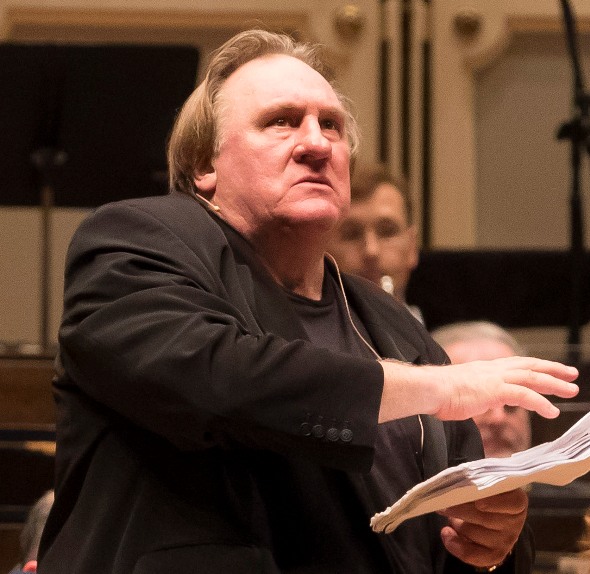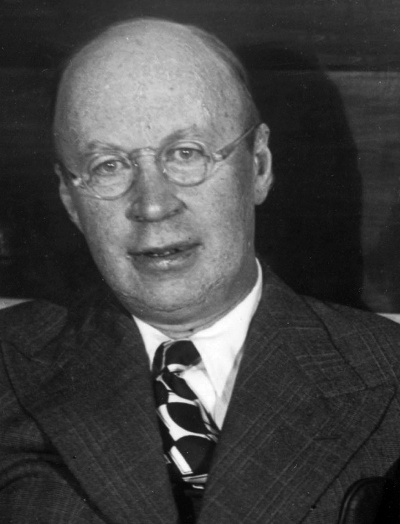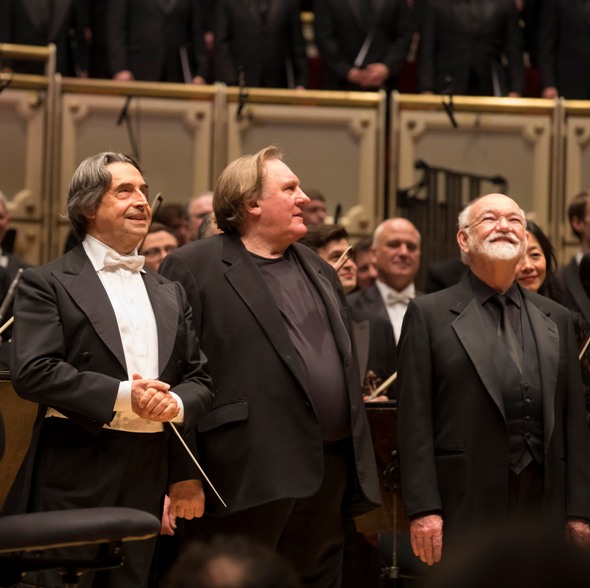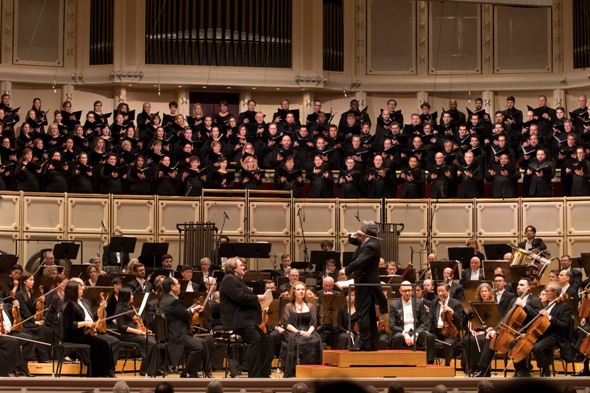Channeling film-maker Eisenstein, Muti directs epic struggle in Prokofiev’s ‘Ivan the Terrible’
Review: “Ivan the Terrible,” Chicago Symphony Orchestra and Chorus led by Riccardo Muti, with Gérard Depardieu as Ivan.
Even for Riccardo Muti, it was an extraordinary night at the symphony. I almost wrote “at the opera.” The maestro’s latest Chicago Symphony Orchestra and Chorus musico-dramatic assemblage, Prokofiev’s “Ivan the Terrible,” a film score adaptation, was nothing short of operatic in the majesty of its vision, the grandeur of its pageantry and the grip of its blood-red emotional palette.
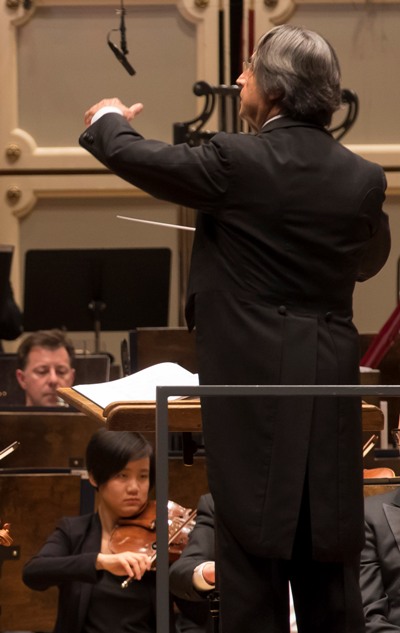 Star power was on hand in actor and longtime Muti friend Gérard Depardieu for the Chicago Symphony premiere Feb. 23 at Orchestra Hall. Depardeiu spoke the words of Ivan, the tactically brilliant Moscow prince who united all of Russia into a 16th-century empire as its visionary yet increasingly brutal and terrifying Tsar. The massive dramatic pageant – for orchestra, adult and children’s choruses, mezzo-soprano, bass and several important speaking parts – amounts to an oratorio that retells the story of Tsar Ivan IV as originally set forth by filmmaker Sergei Eisenstein.
Star power was on hand in actor and longtime Muti friend Gérard Depardieu for the Chicago Symphony premiere Feb. 23 at Orchestra Hall. Depardeiu spoke the words of Ivan, the tactically brilliant Moscow prince who united all of Russia into a 16th-century empire as its visionary yet increasingly brutal and terrifying Tsar. The massive dramatic pageant – for orchestra, adult and children’s choruses, mezzo-soprano, bass and several important speaking parts – amounts to an oratorio that retells the story of Tsar Ivan IV as originally set forth by filmmaker Sergei Eisenstein.
Muti fell in love with the two-part historical film “Ivan the Terrible,” and with Prokofiev’s music for it, as a 17-year-old boy in Naples, when the film was first released for international distribution. Eisenstein created awesome ceremonial scenes with stunning economy of visual means, enhanced by Prokofiev’s liturgical gravitas and resounding choral-orchestral might. In striking contrast were the intense close-ups of hysterical faces emerging from surrounding dark shadows, their exaggerated profiles reflecting malevolence, fear and distress in jagged montages that were paired with Prokofiev’s jazzy, shrieking taunts in chilling colors.
Surely the young Muti recognized that Ivan’s world, as depicted by Eisenstein and Prokofiev, was also the psychological playground of Verdi.
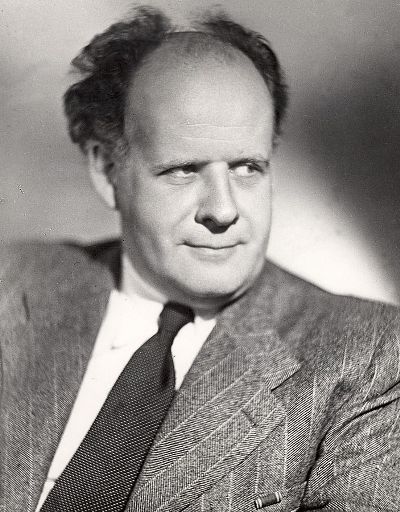 When Muti saw the film, released internationally in 1958, it was a cause célèbre. Soviet leader Joseph Stalin, who initially blessed the idea of an Ivan trilogy, had allowed only the release in 1944 of Part I, which depicted the tsar’s heroic rise. But the dictator nixed Part II, no doubt because it cut too close to current events: It showed an increasingly paranoid tsar’s consolidation of power through assassination and other plots against “enemies within.” Stalin slammed Part II as “unsuccessful” and “erroneous,” ordered the immediate cessation of work on Part III, and regarded both filmmaker and composer suspiciously to the end of their days.
When Muti saw the film, released internationally in 1958, it was a cause célèbre. Soviet leader Joseph Stalin, who initially blessed the idea of an Ivan trilogy, had allowed only the release in 1944 of Part I, which depicted the tsar’s heroic rise. But the dictator nixed Part II, no doubt because it cut too close to current events: It showed an increasingly paranoid tsar’s consolidation of power through assassination and other plots against “enemies within.” Stalin slammed Part II as “unsuccessful” and “erroneous,” ordered the immediate cessation of work on Part III, and regarded both filmmaker and composer suspiciously to the end of their days.
At the time teenage Muti saw the movie, Eisenstein had been gone 15 years, but Stalin’s death, which coincided with Prokofiev’s to the day – March 5, 1953 – was still in vivid memory. Nevertheless, it was not until the 1970s, when Muti was in his 30s, that the conductor happened upon a narrated arrangement of the film score by Abram Stasevich, the original film conductor, while poring through the stacks of a music shop in Vienna. Muti began conducting the work almost immediately, recording it with London’s Philharmonia Orchestra and championing it in many musical capitals, now including Chicago, where the maestro made a grand case for the sprawling masterpiece.
A lifetime of operatic insight and deft detail emerged from Muti’s shaping of the Stasevich arrangement, itself a stitching of narrative snippets and 25 musical segments taken from Prokofiev’s score. Muti is never more impressive than when he is shaping such a textured, complex canvas; his artistry was absorbing in detail and suspenseful to the very end.
The CSO musicians were silent as Depardieu’s Ivan lamented over the body of his dead wife, accompanied only by the exquisitely ethereal chorus, but otherwise the orchestra was majestically front and center, with a battle scene of relentless rip at the spectacle’s mighty heart. Present virtually throughout, with only the shortest of breaks, the massive Chicago Symphony Chorus prepared by Duain Wolfe were like quick-change artists, glowing with sacred fire in one passage, heroic in war, drunk with revelry or profoundly reflective in another. Their riveting work was supplemented by the able Chicago Children’s Chorus in a tender cameo.
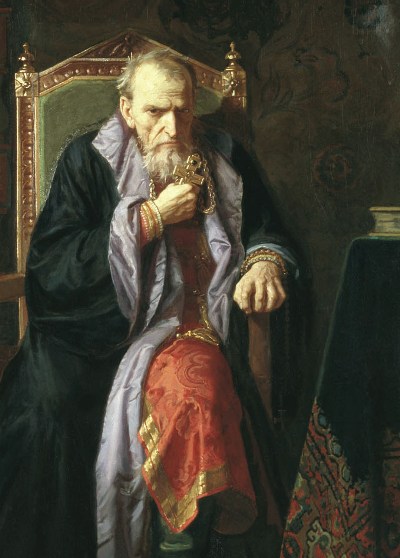 Depardieu practically sang his spoken role as Ivan, whose authority seemed at times drawn from a divine source, at others suspect, stubborn, crumbling, human. It was an imposing physical performance, supplemented by an endearing contribution from chorus member Michael Brown as the agitated Holy Fool, and by the superb narration throughout of Russian-speaking Steppenwolf Theatre member Yasen Peyankov.
Depardieu practically sang his spoken role as Ivan, whose authority seemed at times drawn from a divine source, at others suspect, stubborn, crumbling, human. It was an imposing physical performance, supplemented by an endearing contribution from chorus member Michael Brown as the agitated Holy Fool, and by the superb narration throughout of Russian-speaking Steppenwolf Theatre member Yasen Peyankov.
The other solo roles were sung. Bass Mikhail Petrenko, as the bodyguard Basmanov, delivered a suave drinking song with grisly lyrics that left little doubt as to the nature of the dirty work the Tsar’s “iron ring” of protection required. And with soothing, ironic detachment mezzo-soprano Sasha Cooke, as Ivan’s treacherous aunt Efrosiniya, sang a deadly folk ditty about a doomed beaver in the wild. Anyone under a despot’s thumb would identify.
Related Links:
Muti and the CSO took Prokofiev’s “Alexander Nevsky” to Carnegie Hall in 2015: Read about it at Chicago On the Aisle

